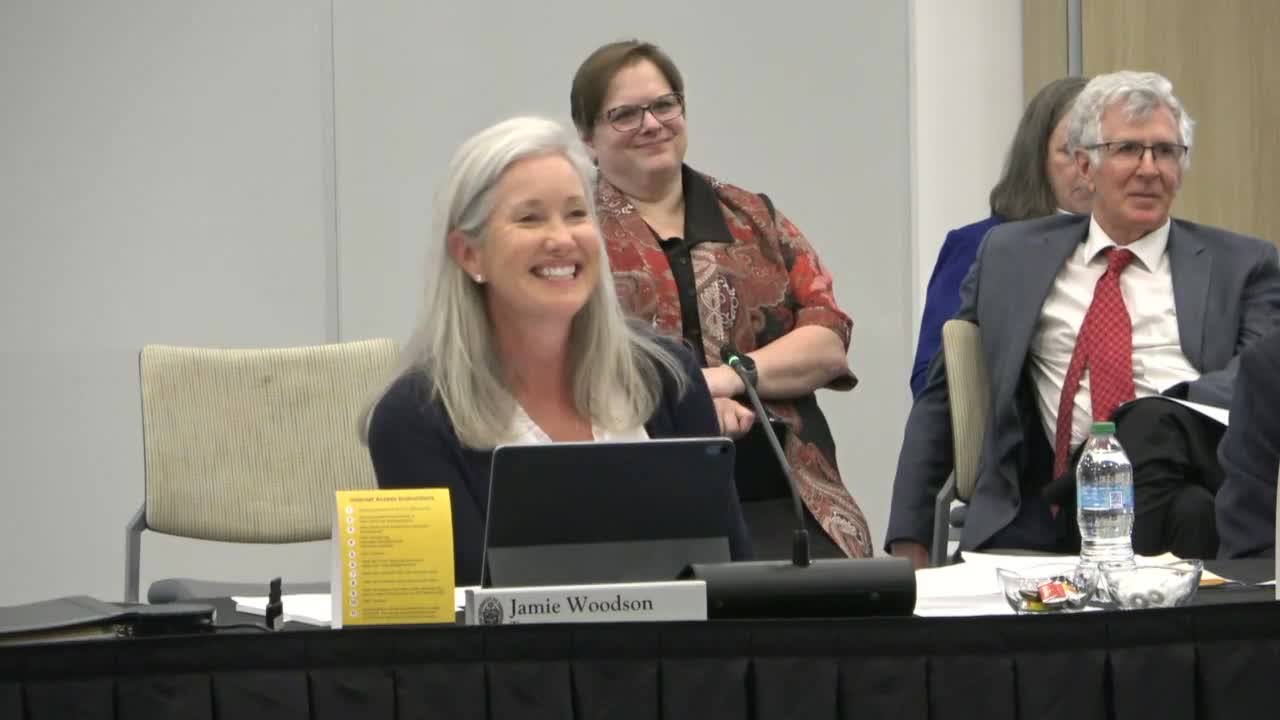Article not found
This article is no longer available. But don't worry—we've gathered other articles that discuss the same topic.
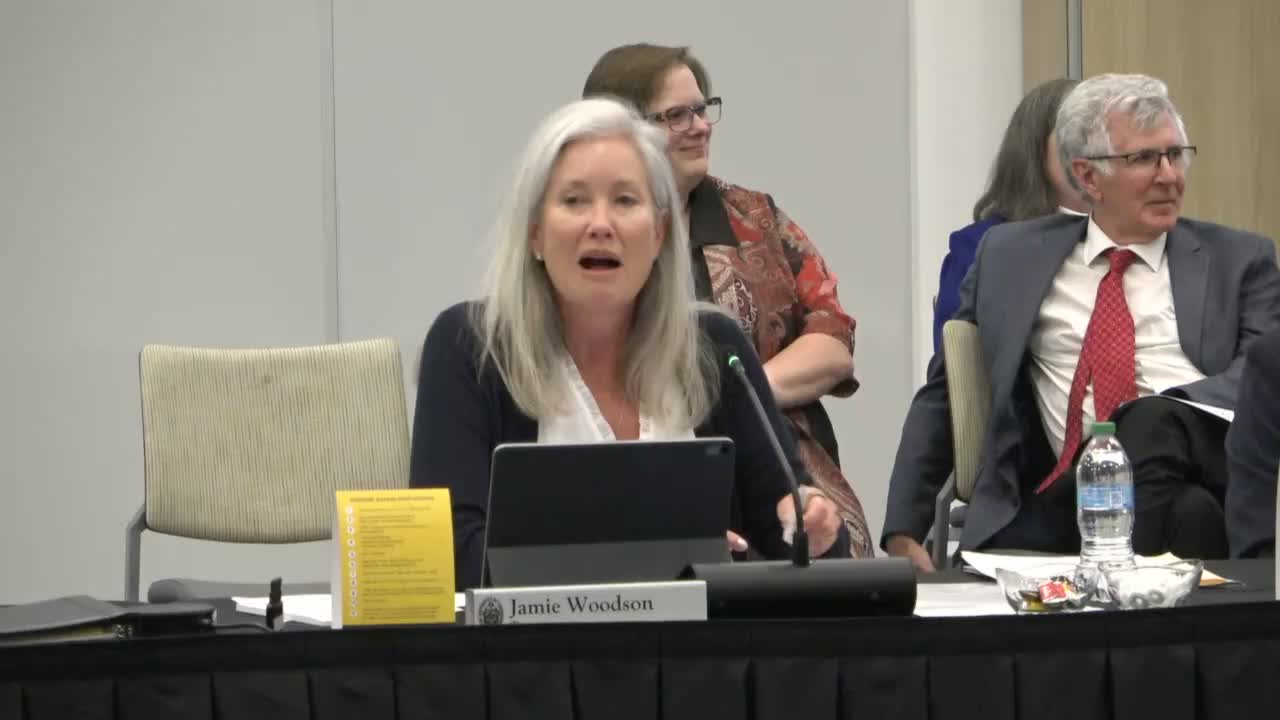
Committee approves consent agenda including faculty‑handbook revisions and program changes
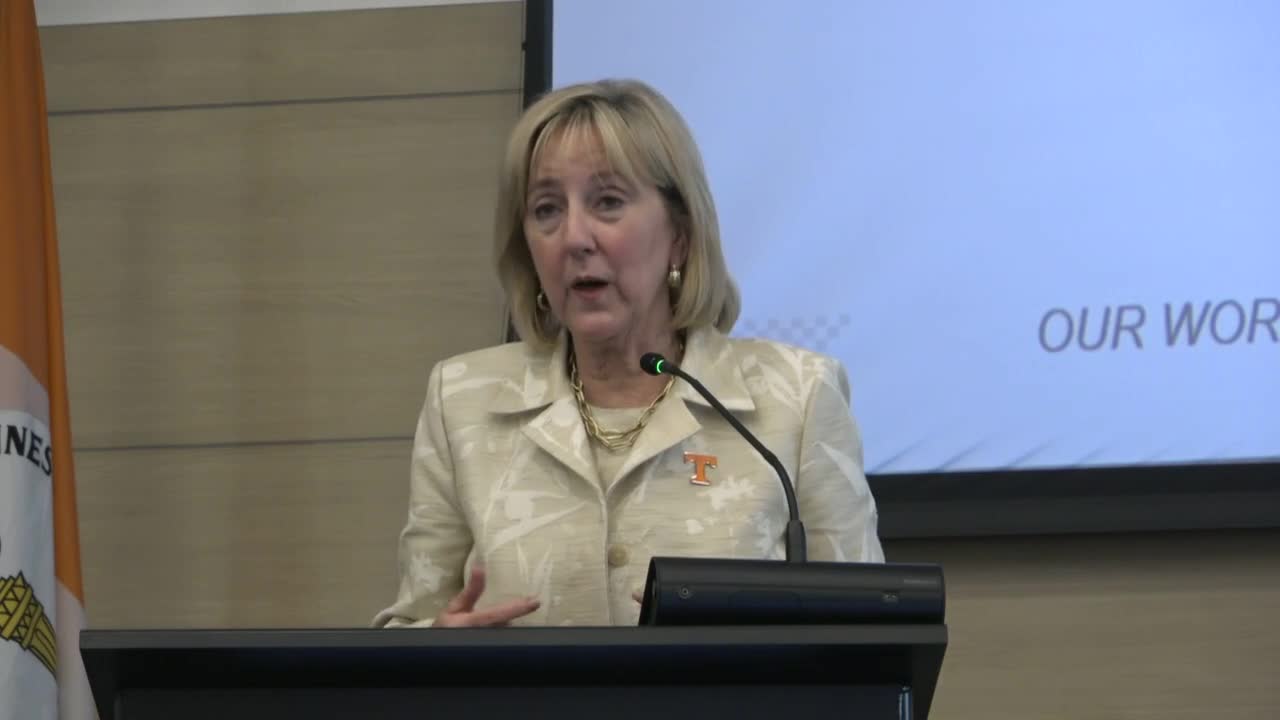
UT Knoxville presents SEP 2030: aim for 55,000 students and 50,000 new graduates with large online growth
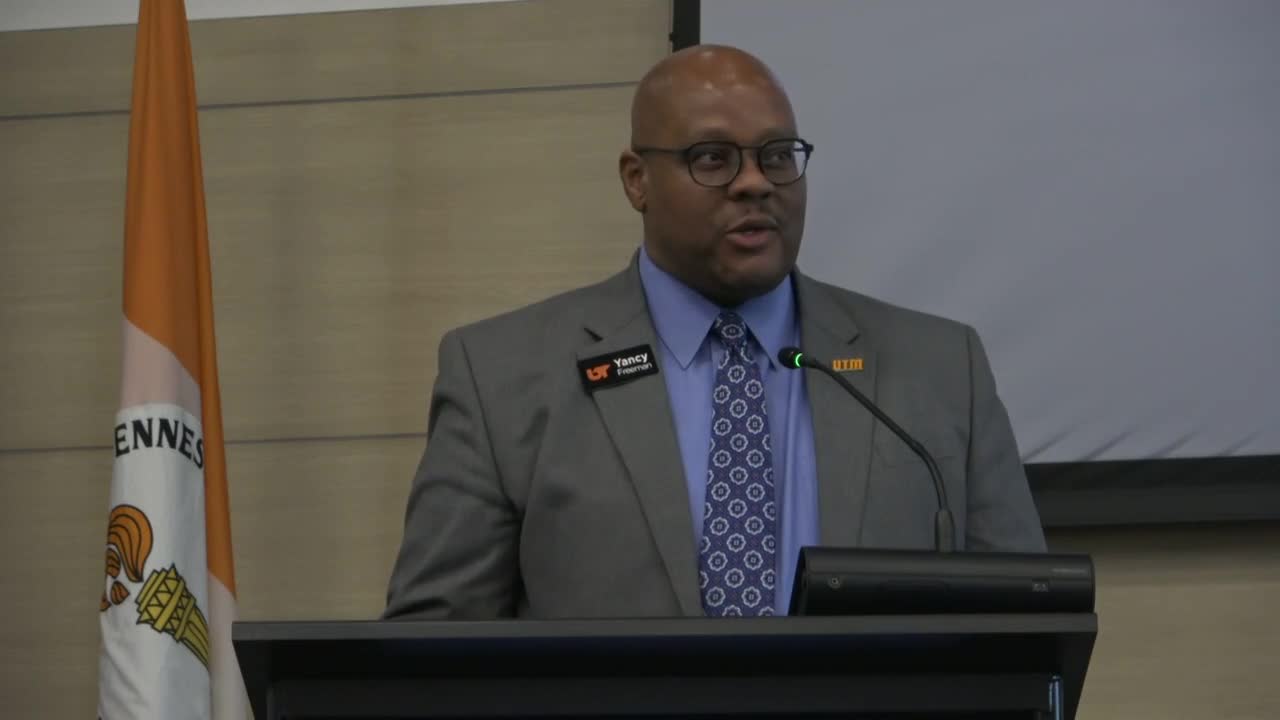
UT Martin lays out enrollment plan aiming for 10,000 students by 2030; projects revenue gains and infrastructure needs
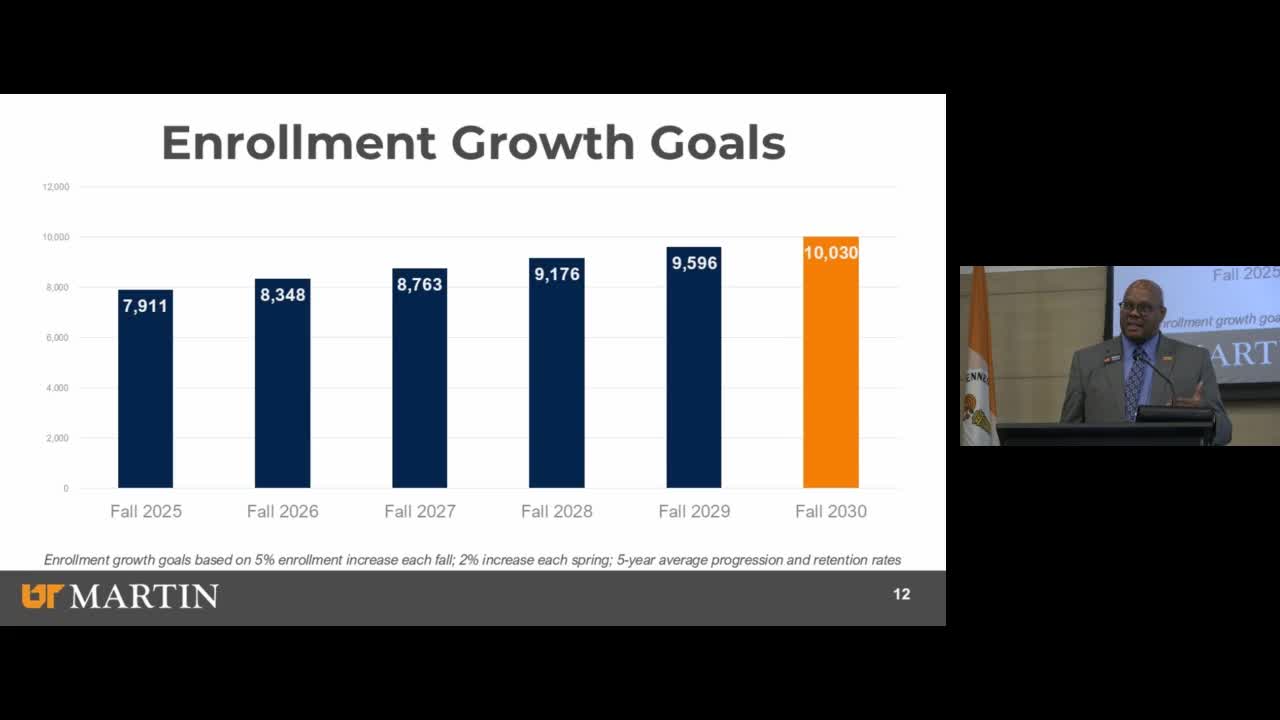
UT Knoxville leaders lay out five‑year push for ‘next level’ research hiring and place‑based innovation districts
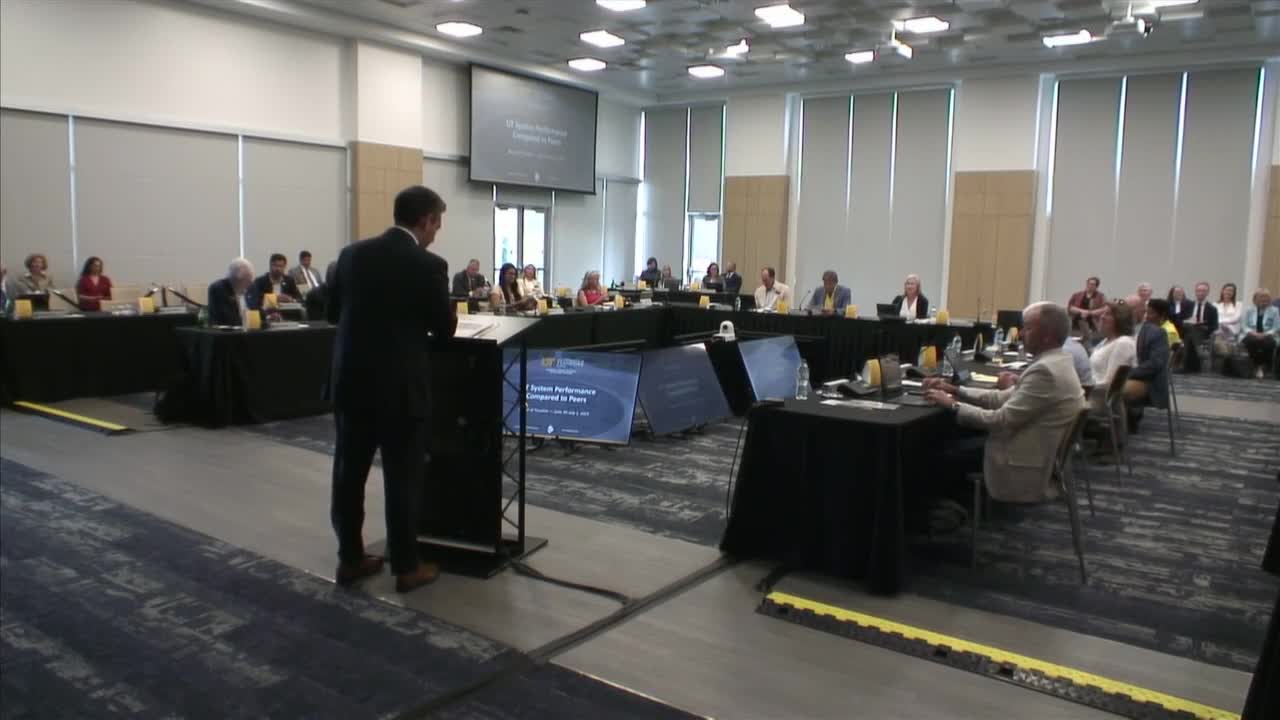
UT System report: Knoxville enrollment and retention rose sharply; other campuses show mixed gains
